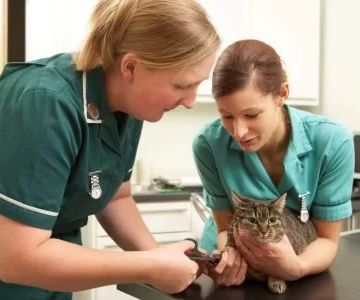What Do Veterinary Technicians Make? Understanding the Salary and Benefits of This Vital Profession
- 1. What is a Veterinary Technician?
- 2. How Much Do Veterinary Technicians Make?
- 3. Factors That Affect Veterinary Technician Salaries
- 4. Job Outlook for Veterinary Technicians
- 5. Career Growth Opportunities for Veterinary Technicians
1. What is a Veterinary Technician?
A veterinary technician is a trained professional who assists veterinarians in diagnosing, treating, and caring for animals. Veterinary technicians, often called vet techs, play an essential role in animal healthcare. Their duties include conducting lab tests, taking X-rays, administering vaccinations, and assisting during surgeries. They work in various settings, including animal hospitals, clinics, zoos, and wildlife reserves.
Veterinary technicians must undergo a formal education program, typically earning an associate’s degree in veterinary technology. In addition to technical skills, vet techs also need compassion and the ability to handle stressful situations, as their role often involves working with both sick animals and concerned pet owners.
2. How Much Do Veterinary Technicians Make?
So, what do veterinary technicians make? According to the Bureau of Labor Statistics (BLS), the median annual salary for veterinary technicians in the United States is approximately $36,000 to $38,000. However, this salary can vary depending on a variety of factors, including geographic location, years of experience, and the specific type of practice or facility where the technician works.
While the salary for veterinary technicians may not be as high as some other medical professions, the job offers a rewarding career with the opportunity to make a significant impact on animal health. Moreover, many veterinary technicians also receive benefits such as health insurance, retirement plans, and paid time off, which can add to the overall compensation package.
3. Factors That Affect Veterinary Technician Salaries
The salary of a veterinary technician can be influenced by several factors:
- Geographic Location: Salaries can vary depending on the cost of living in different regions. Vet techs working in urban areas or regions with a high demand for veterinary services tend to earn higher salaries than those working in rural areas.
- Experience: Just like in most professions, experience plays a significant role in salary. Entry-level veterinary technicians can expect to earn closer to the lower end of the salary range, while those with more years of experience, specializations, or certifications can earn more.
- Work Setting: Veterinary technicians working in specialty practices or larger veterinary hospitals may earn more than those working in smaller general practices or animal shelters. Additionally, vet techs who work with exotic animals or in research settings may earn higher wages.
It’s important to consider these factors when evaluating potential salaries as a veterinary technician, and to recognize that compensation may increase with professional growth and experience.
4. Job Outlook for Veterinary Technicians
The job outlook for veterinary technicians is quite positive. According to the BLS, employment for veterinary technicians is expected to grow by about 16% over the next decade, which is much faster than the average for other occupations. This growth is primarily driven by an increasing demand for pet care and veterinary services, as more people are adopting pets and seeking specialized care for their animals.
Additionally, as veterinary care becomes more advanced, there is a growing need for skilled professionals who can assist in areas like dentistry, anesthesia, and diagnostic imaging. This expanding scope of practice offers promising job opportunities for veterinary technicians in the years to come.
5. Career Growth Opportunities for Veterinary Technicians
Veterinary technicians have various opportunities for career growth and advancement. Many vet techs choose to pursue further certifications or specializations to increase their earning potential and enhance their skill set. Common certifications include:
- Veterinary Technician Specialist (VTS): This certification allows veterinary technicians to specialize in areas like anesthesia, emergency care, dentistry, and cardiology.
- Certified Veterinary Practice Manager (CVPM): For those interested in moving into management roles, this certification allows veterinary technicians to manage veterinary practices and clinics.
- Continuing Education: Many veterinary technicians also choose to pursue additional education or attend conferences and workshops to stay up-to-date with the latest advancements in veterinary medicine.
These growth opportunities can lead to higher salaries, more job satisfaction, and the chance to take on more responsibility within the veterinary field. With the increasing demand for veterinary care and the expansion of specialized services, there are plenty of avenues for a fulfilling career in veterinary technology.
If you’re interested in pursuing a career as a veterinary technician or are looking for guidance on educational programs, Hidden Brook Veterinary offers expert resources, advice, and services to help you take the next step in your career.











